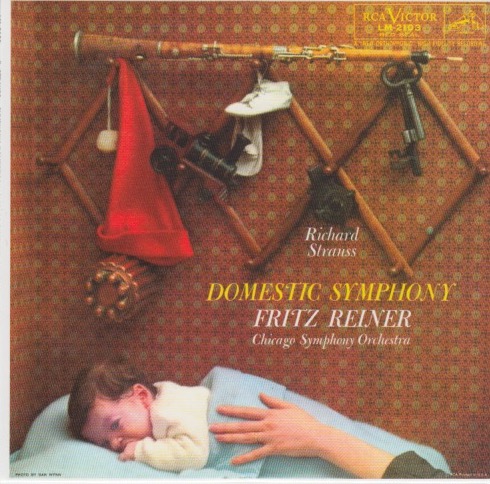
I’m not sure I can express how little I cared for this performance. I was bored from the first five minutes, and I didn’t hear an exciting note thereafter.
Whatever this piece of music is (another one of Strauss’ “Tone Poems,” from that I gather), I didn’t get it.
Some composers resonate with me. Deeply. Others, leave me cold.
Guess which category Richard Strauss is in.
The Objective Stuff
According to its entry on Wikipedia,
Symphonia Domestica, Op. 53, is a tone poem for large orchestra by Richard Strauss. The work is a musical reflection of the secure domestic life so valued by the composer himself and, as such, harmoniously conveys daily events and family life.
In 1898, Strauss became the chief conductor of the Royal Court Opera in Berlin. It was at this point in his life that the composer took a keen interest in his own circumstances and turned his attention to his status and personal history. When he began composing the Symphonia Domestica, he intended it to be the sequel to Ein Heldenleben, the next installment of the autobiography of the now-successful artist.
He worked on the piece during 1903, finishing it on New Year’s Eve, in Charlottenburg.
The program of the work reflects the simplicity of the subject matter. After the whole extended family (including the aunts and uncles) has been introduced, the parents are heard alone with their child. The next section is a three-part adagio which begins with the husband’s activities. The clock striking 7 a.m. launches the finale.
Strauss was 39 when he composed this. It was recorded in Orchestra Hall on November 5, 1956. It was originally released as a Mono album. Reiner was 68 when he conducted it.
The Subjective Stuff
Recording quality: 3
Overall musicianship: 3
CD booklet notes: 2
CD “album cover” information: 4
How does this make me feel: 0

I was bored stiff. Hearing this Strauss composition 3-4 times in a row didn’t sweeten the deal, either. I remained bored stiff and, frankly, irritated. The more I listened to this, the more irritated it made me.
If I’m going to listen to a song about an ordinary life, I’m going to listen to the Beatles’ “A Day in the Life,” which is a far more creative composition.
Let’s be honest. The entire world has probably heard the Beatles’ “A Day in the Life.”
Or, at least, most people have heard of the album from which it came: Sgt. Pepper’s Lonely Hearts Club Band. I’ve been listening to Classical music intensely for over a decade. In all my life before that, I’d never heard of Richard Strauss’ Domestic Symphony.
I could go the rest of my life without hearing it again and be perfectly fine with it.
Come on. Compare Domestic Symphony to “A Day in the Life.” Which would you rather listen to?
I read the news today, oh boy
About a lucky man who made the grade
And though the news was rather sad
Well, I just had to laugh
I saw the photograph
He blew his mind out in a car
He didn’t notice that the lights had changed
A crowd of people stood and stared
They’d seen his face before
Nobody was really sure if he was from the House of Lords
I saw a film today, oh boy
The English Army had just won the war
A crowd of people turned away
But I just had to look
Having read the book
I’d love to turn you on
Woke up, fell out of bed
Dragged a comb across my head
Found my way downstairs and drank a cup
And looking up, I noticed I was late
Found my coat and grabbed my hat
Made the bus in seconds flat
Found my way upstairs and had a smoke
And somebody spoke and I went into a dream
I read the news today, oh boy
Four thousand holes in Blackburn, Lancashire
And though the holes were rather small
They had to count them all
Now they know how many holes it takes to fill the Albert Hall
I’d love to turn you on
